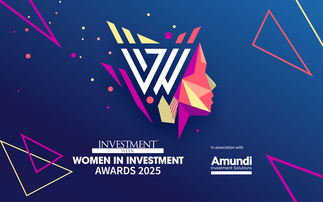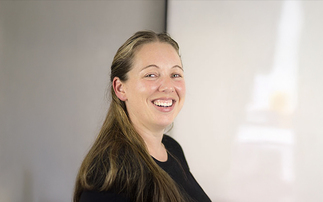
First impressions count. But they can also be misleading, prompting us to pass unfair judgements based on our preconceived ideas.
According to one study, even people who are made aware of a person's sexual orientation prior to seeing them often choose to disregard this information and base their judgement on the individual's physical appearance instead.
In a business environment, unconscious - and in some cases conscious - bias can therefore be a major barrier to recruiting a diverse workforce.
"Unconscious, conscious, and structural biases come into play in the recruitment process, so it's important that we are self-aware of what our biases are and take the steps to educate ourselves to ensure they don't impact on our behaviour and decisions," said Kate Hassey, Head of Distribution Oversight at HSBC Global Asset Management Investment Funds.
Asset managers are tackling this problem in a number of ways, including by widening their hiring horizons to ensure job opportunities attract a diverse range of applicants.
Here, we highlight three approaches that can help stamp out recruitment biases.
1. Collecting diversity data
According to the Social Mobility Foundation, which supports greater inclusion for people from lower socioeconomic backgrounds, quality data is crucial to the development of an unbiased recruitment process.
As it's 2021 Employer Index Report says: "Collecting data is the vital first step in creating more inclusive workplaces."
Investment Association (IA) chief executive Chris Cummings agrees. "Data is the empowerment of D&I and is essential to drive change," he added.
For many employers, the best way to begin tackling recruitment biases is therefore to start collecting data that can help to identify the types of people they are failing to hire.
2. Offering unconscious bias training
It's human nature to gravitate towards people who are similar to us, which is why it's important for employers keen to attract female candidates to avoid male-only interview panels.
"In the interview process, we always have at least one woman attending," said Stephanie Wu, an equity portfolio manager at HSBC Global Asset Management.
However, with training, it's also possible to become more aware of our own biases and adjust negative thinking patterns such as stereotyping people based on their race or gender.
Unconscious bias training is therefore increasingly being accepted as an effective way to help employees in the asset management sector challenge their own preconceptions.
"A lot is being done to tackle unconscious bias in the industry through the implementation of unconscious bias training as well as D, E & I policies, initiatives and targets," Hassey said.
3. Conducting "blind" screening
Thanks to hi-tech diversity software programmes, there is no longer any need for human involvement in the application screening process that decides which candidates are invited for an interview.
These programmes allow applicants to create their own online profiles and give details of their skills, interests, and career aspirations, all without revealing their name, gender, race, or socioeconomic background.
The number of employers using such software to prevent recruitment biases is growing. In 2021, the Social Mobility Foundation found that 48% of companies were recruiting this way, up from 46% in 2020 and 35% in 2019. Future-facing employers are already starting to use virtual reality to negate biases at interview level too.
This article is part of a series of articles on diversity and inclusion, produced by Investment Week in association with HSBC Global Asset Management. You can find the full series on a dedicated hub here.
This post is sponsored by HSBC Asset Management.












